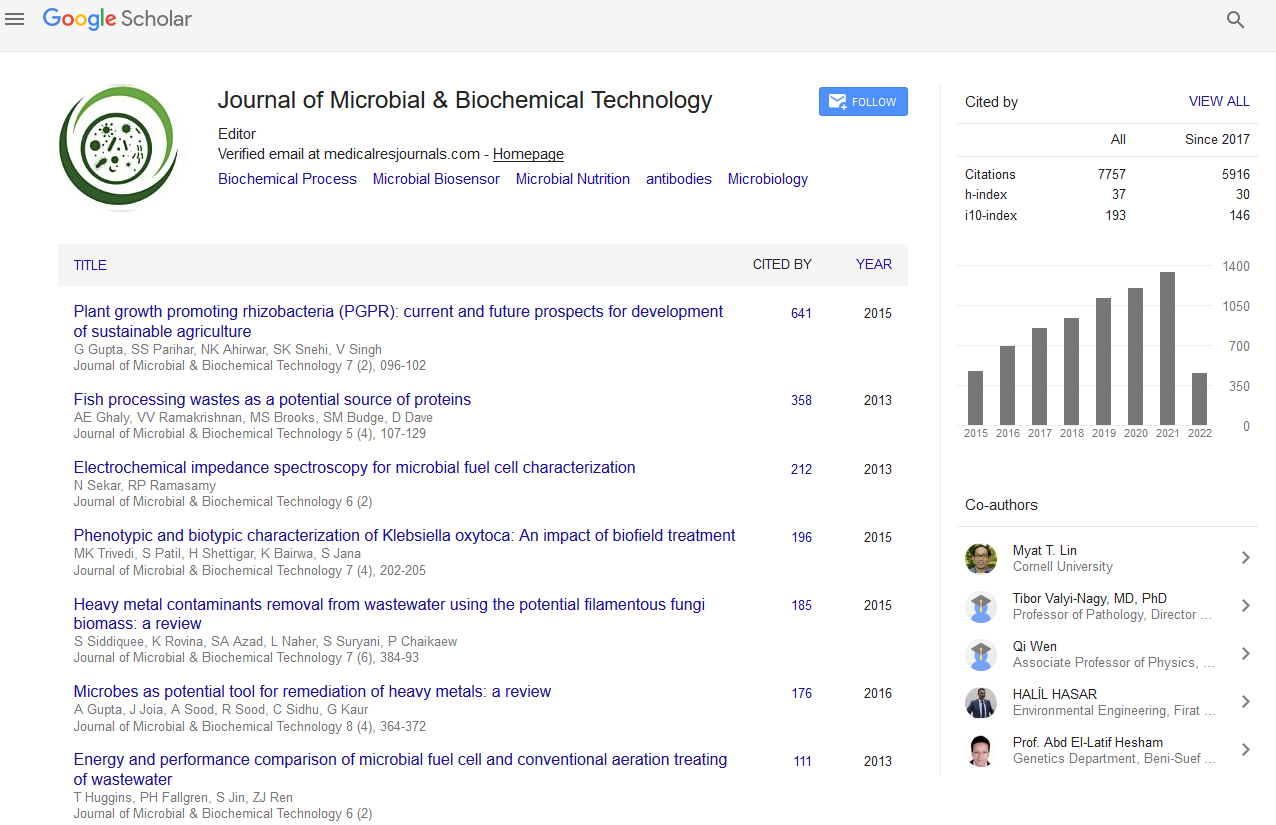PMC/PubMed Indexed Articles
Indexed In
- Academic Journals Database
- Genamics JournalSeek
- Academic Keys
- JournalTOCs
- China National Knowledge Infrastructure (CNKI)
- Scimago
- Access to Global Online Research in Agriculture (AGORA)
- Electronic Journals Library
- RefSeek
- Directory of Research Journal Indexing (DRJI)
- Hamdard University
- EBSCO A-Z
- OCLC- WorldCat
- SWB online catalog
- Virtual Library of Biology (vifabio)
- Publons
- MIAR
- University Grants Commission
- Geneva Foundation for Medical Education and Research
- Euro Pub
- Google Scholar
Useful Links
Share This Page
Journal Flyer

Open Access Journals
- Agri and Aquaculture
- Biochemistry
- Bioinformatics & Systems Biology
- Business & Management
- Chemistry
- Clinical Sciences
- Engineering
- Food & Nutrition
- General Science
- Genetics & Molecular Biology
- Immunology & Microbiology
- Medical Sciences
- Neuroscience & Psychology
- Nursing & Health Care
- Pharmaceutical Sciences
Anti-norovirus activity of lemongrass essential oil
International Conference and Expo on Water Microbiology & Novel Technologies
July 18-19, 2016 Chicago, USA
Sung-Joon Lee, Ye Won Kima, Hyun Ju Yu, Soyoung Lee, Bomi Kim, Do Kyung Kim, Joo-Bong Choi, Ji-Ah Kim, Hee Jung Lee, In Sun Joo, Jeong Su Lee, Dong Hyun Kang and Gwang Pyo Ko
Korea University, South Korea
Seoul National University, South Korea
National Institute of Food and Drug Safety Evaluation, South Korea
Posters & Accepted Abstracts: J Microb Biochem Technol
Abstract:
This study investigated the effect of lemongrass essential oil (LGEO) on the infectivity and viral replication of norovirus. Murine norovirus (MNV), a surrogate of human norovirus, was pre-incubated with LGEO and then used to infect RAW 264.7 cells in a plaque reduction assay. LGEO exhibited a significant reduction in MNV plaque formation in both time and dose dependent manners. qPCR results were in line with those of plaque reduction assay. It was revealed that citral, a single compound in LGEO, showed dramatic reduction in MNV infectivity (-73.09% when using a treatment of 2% v/v). The inhibitory activity of LGEO on viral replication was further investigated in HG23 cells that harbored a human norovirus replicon. LGEO treatment significantly reduced viral replication in HG23 cells, which suggests that LGEO may have dual inhibitory activities that inactivate viral coat proteins required for viral infection and suppress norovirus genome replication in host cells. In animal experiments, oral administration of MNV pre-incubated with LGEO significantly suppressed MNV infectivity in vivo. Collectively, these results suggest that LGEO, in particular the LGEO component citral, inactivates norovirus and its subsequent replication in host cells. Thus, LGEO shows promise as method of inhibiting norovirus within the food industry.
Biography :
Sung-Joon Lee has completed his PhD from Harvard University and Postdoctoral studies from Stanford University School of Medicine. He is a Professor of Department of Biotechnology in Korea University. He has published more than 120 papers in SCI-listed journals and has been serving as an Editorial Board Member of repute.
Email: sungjoon.lee@gmail.com


